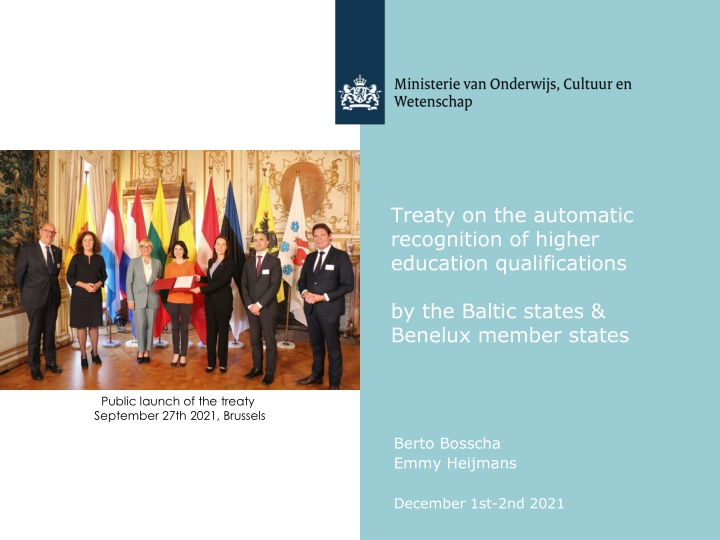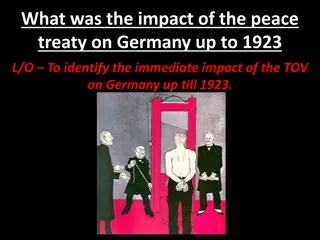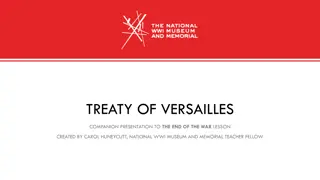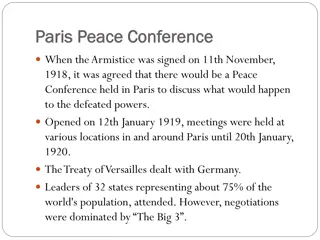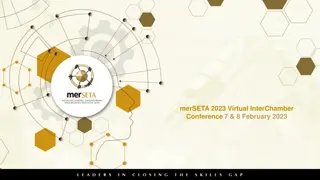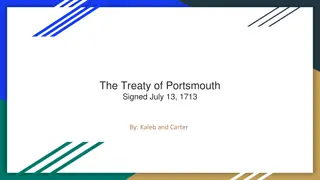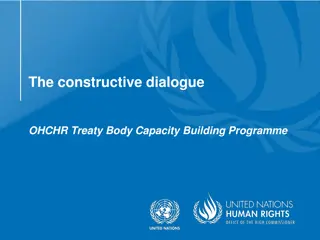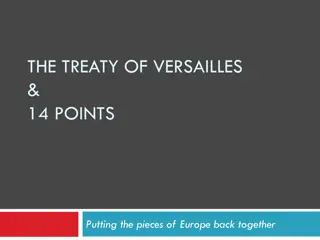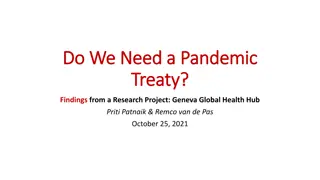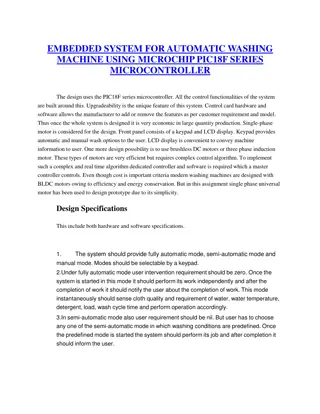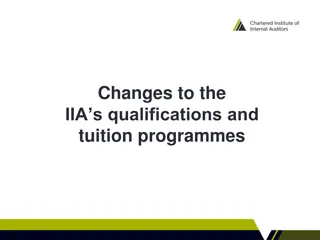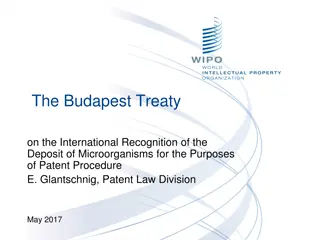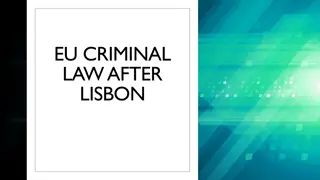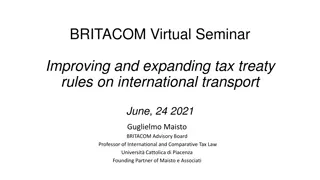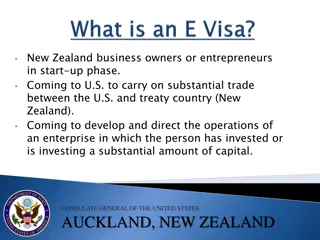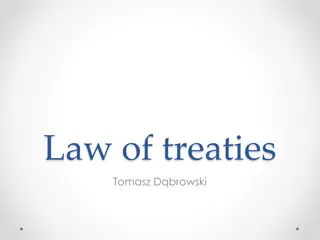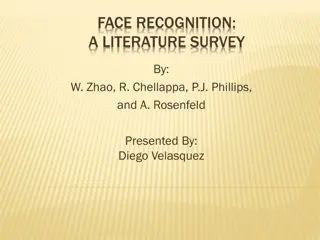Automatic Recognition of Higher Education Qualifications Treaty Summary
Importance of automatic recognition of qualifications in higher education has been emphasized, leading to initiatives like the Treaty on Automatic Recognition of Higher Education Qualifications by Baltic and Benelux states. This treaty aims to enhance mutual trust, transparent recognition, and contribute to the European Higher Education Area (EHEA). It outlines the process of automatic recognition in practice and steps towards entry into force.
Download Presentation

Please find below an Image/Link to download the presentation.
The content on the website is provided AS IS for your information and personal use only. It may not be sold, licensed, or shared on other websites without obtaining consent from the author.If you encounter any issues during the download, it is possible that the publisher has removed the file from their server.
You are allowed to download the files provided on this website for personal or commercial use, subject to the condition that they are used lawfully. All files are the property of their respective owners.
The content on the website is provided AS IS for your information and personal use only. It may not be sold, licensed, or shared on other websites without obtaining consent from the author.
E N D
Presentation Transcript
Treaty on the automatic recognition of higher education qualifications by the Baltic states & Benelux member states Public launch of the treaty September 27th 2021, Brussels Berto Bosscha Emmy Heijmans December 1st-2nd 2021
Importance of automatic recognition The need for automatic recognition of qualifications has been repeatedly emphasised Bucharest Communiqu 2012 Yerevan Communiqu - 2015 Paris Communiqu - 2018 In higher education, recognition procedures often remain too complicated or too expensive and too many mobile students do not obtain full recognition of successfully achieved learning outcomes. However, several Member States have taken the initiative to make progress towards automatic mutual recognition, including through the signature of regional agreements. These initiatives could serve as models for the creation of a Union-wide system. 2018 Council Recommendation
Start of the multilateral treaty The Decision of the Benelux Committee of Ministers concerning the automatic mutual generic level recognition of higher education degrees in 2015 (bachelor s degrees and master s degrees). supplemented by the decision in 2018 (associate degrees and doctoral degrees). The Agreement among the Government of the Republic of Estonia, the Government of the Republic of Latvia and the Government of the Republic of Lithuania on the automatic academic recognition of qualifications concerning higher education in 2018. Declaration of Intent by the Baltic States and Benelux Member States to explore the possibilities for drafting a multilateral treaty in 2019. 3
Aims of the treaty Mutual trust in the education systems More transparant recognition Contribution totheEHEA 4
Automatic recognition in practice A HE qualification is automatically recognised at the same level of the corresponding HE qualification (AD, BA, MA, doctoral) issued by another country. The basis for mutual trust lies in the ratification of the LRC and active membership of the EHEA. The treaty/AR does not apply to: a) recognition of the specific programmes b) recognition of periods of study c) recognition of qualifications that do not belong to the HE system d) recognition of professional qualifications 5
Steps towards entry into force The treaty shall enter into force on the first day of the first month after the last instrument of ratification/acceptance/approval is deposited. Estonia has already concluded the ratification process 6
Accession to the treaty by other countries Countries may apply to accede to the treaty by handing in an application to the depositary (the Secretariat-General of the Benelux Union) if the following conditions are met (article 13) 1. Ratification of Lisbon Recognition Convention 2. Member of the European Higher Education Area 3. Application of trustworthy quality assurance systems for HE programmes, demonstrated by proven compliance with the ESG 4. A three-cyle, in compliance with the QF-EHEA 5. Referencing of the national HE QF to the EQF 7
